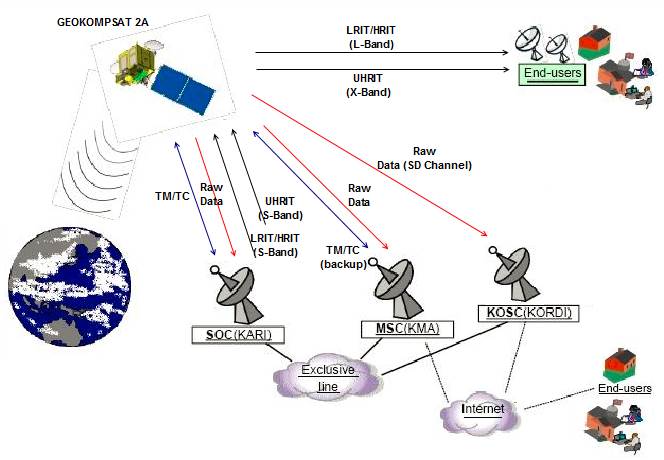CDTI (Centro de Desarrollo Tecnológico Industrial) awards financial support to Thales Alenia Space España COACH Project

Spatial sector, and more specifically, the satellite equipment market is one of the business contexts with bigger projection in the near future in the actual worldwide scenario. It is expected a dramatically demand growing in all application sectors, covering telecommunications, earth observation and navigation. In this context, both Spain and Korea are playing an important role, each leading their own missions, like Ingenio for earth observation, or GeoKompsat, the multipurpose geostationary Korean system.
GEO-COMPSAT 2A and 2B are two geostationary satellites, developed by KARI (Korea Aerospace Research Institute) that are going to be launched in 2017 and 2018 respectively, embarking payloads for meteorological applications. This is the second generation of the system that South Korea has in orbit (COMS-1 satellite), and that will end its operational lifetime by 2019.
Thales Alenia Space España has designed a complete development, assembly, integration and testing program for all the elements included in this project, thus allowing the introduction of several developments in the ODCS (Observation Data Communication Subsystem) for each one of the satellites GEO-KOMPSAT-2. This ODCS includes the following functionalities to the GeoKompSat 2 mission:
- Data reception coming from the several instruments in the payload
- Data transmission of the payload in the SD channel in X-Band
- Relay of the meteorological and oceanic processed data to the final users, through LRIT/HRIT/UHRIT channels
- Time commands and signals distribution to all elements in the payload

Thales Alenia Space España is the Project leader, that is, the technical and managerial responsible of the ODCS subsystem. Its responsibility cover all system design and development phases, specification of all active and passive elements, including their commissioning, integration, qualification and final testing. Furthermore, Thales Alenia Space España is in charge of the design and development of the S/L and S/X receivers. After receiving all the elements and equipment composing the subsystem, it will start the integration of all elements in the satellite panels in its premises in Madrid, to be finally delivered to Korea for the final integration in each corresponding GEO-KOMPSAT satellite.
JEC is appointed as the responsible for the ODCS passive elements development with Thales Alenia Space España support in all phases. The technological developments are basically passive filters and test couplers from L-Band to X-Band, with very stringent performance requirements in band and strong power requirements.


